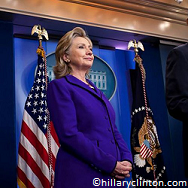By Jeffrey Hammons Introduction Over the past few months, the Michigan Public Service Commission (“MPSC”) issued a series of orders updating how it implements its obligations under Section 210 of the Public Utility Regulatory Policies Act (“PURPA”).[1] These orders could spur new development of solar energy facilities in Michigan. Due […]
Solar Power
by Romany Webb and Justin Gundlach There has been much talk in recent weeks about pricing carbon to reduce greenhouse gas emissions. Earlier this month, a group of former Republican cabinet members proposed adoption of a nationwide carbon price, starting at $40 per ton. That seems unlikely, however. Even the […]
On Wednesday, U.S. Secretary of State John Kerry arrived in Marrakech for the 22nd meeting of the Conference of the Parties (COP) to the United Nations Framework Convention on Climate Change (UNFCCC), known as COP22. Hundreds queued for hours in the hot Marrakechi sun for an opportunity to hear Secretary […]
Morocco isn’t often thought of as an environmental leader. But, having spent the last few days in Marrakech, I now realize that it should be. On checking into my hotel, I was told that all lights are on a timer, “so we save electricity.” Riding on one of the city’s […]
Jessica Wentz Associate Director and Fellow On March 14, the New York State Senate released a FY 2017 budget proposal that would divert $138 million from the Regional Greenhouse Gas Initiative (RGGI) auction proceeds to the state budget, including $23 million to the general fund, $100 million to subsidize the […]
Grant Glovin, Sabin Center Summer Intern Hillary Clinton’s climate change plan, released last week, centers on two goals: installing 500 million solar panels by 2021, and, relatedly, adding enough electric generation capacity from renewable sources to supply all residential electricity needs. The plan appears ambitious: the solar power expansion alone […]
Arijit Sen, Sabin Center Summer Intern Recently, two competing plans to reform California’s four-tier electricity rate structure of the three investor-owned utilities (IOUs)[1] have emerged from the California Public Utilities Commission (CPUC). On April 21, 2015, CPUC administrative law judges (ALJs) McKinney and Halligan filed a proposal that suggests implementing […]
On June 25, 2013, President Obama delivered a major speech on the topic of climate change. In it he outlined a broad policy agenda aimed at addressing the challenges posed by the changing climate. The agenda, detailed in The President’s Climate Action Plan, relies almost entirely upon executive powers; Congress […]




